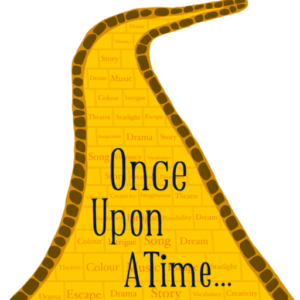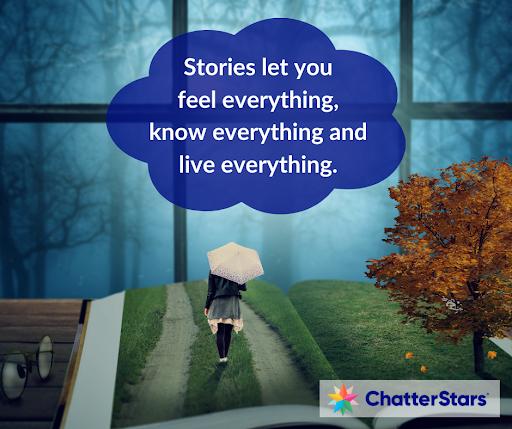Once Upon a Time Festival
Once Upon a Time Festival: Celebrating the Power of Storytelling

We have exciting news from ChatterStars HQ and we wanted you to know first! Our very own founder, Helen Prince, will be hosting a magical reading and storytelling festival in summer 2024, alongside other big names in the educational space.
A vibrant, story-led festival promoting vocabulary development and the power of storytelling in children’s education, Once Upon a Time Festival is coming to Bristol in June 2024. Ready to learn more about this exciting event? Let’s go!
What is Once Upon a Time Festival?
Brought to you by ChatterStars and Mrs Underwood, Once Upon a Time Festival is all about inspiring and empowering teachers to incorporate story-led creativity into their classrooms. Stories have the power to engage, educate and inspire our children like no other medium.
The mission of the festival is to equip educators with the tools and techniques necessary to foster creativity and a love for learning in their students by showcasing story-led, creative teaching methods. We aim to harness the magic and wonder of storytelling to revive and reawaken the passion for teaching.
-
- Where? Bristol Beacon
- When? Saturday 15th June 2024
- Who? KS1, 2 and 3 teachers and teaching assistants
- How much?
- Individual ticket: £149
- Friends together: early bird offer £165 for 2 people (until end of January 2024), £199 after that
- Schools package: from £395
Helen Prince (ChatterStars founder) says: “In our mission to boost a powerful voice and vocabulary, story-led creativity is vital, so the Once Upon A Time Festival is essentially the live, face-to-face version of our digital offer.”
What happens at Once Upon a Time Festival?
Empowering educators, embracing storytelling and igniting creativity are just a few of our aims at the magical Once Upon a Time Festival. Here’s what you can expect from our stellar line-up of events and speakers:
- Interactive workshops: Engaging sessions by leading educators and storytellers, where attendees will learn practical techniques for integrating storytelling, music and drama into their teaching.
- Inspirational speakers: Interactive presentations from Helen Prince, Rebecca Underwood, Hywel Roberts and Adele: all leading experts in education, creativity, oracy and storytelling.
- Resource fair: A range of helpful creative products and services designed for educators like you.
- Networking opportunities: Participants will have the chance to connect and collaborate with like-minded educators and industry professionals.
- Goodie bags: Lots of treats to take away, including ‘50 Ways With’ drama booklets.
- Teaching ideas: Countless ideas for games and activities, including SEND-friendly ideas.
- Treats to enjoy: Refreshments and popcorn!
What do teachers have to say about the speakers at Once Upon a Time Festival?
We’ve been lucky enough to receive glowing feedback from primary and secondary teachers who have attended our events before – thank you to all previous attendees and we look forward to welcoming you if this will be your first time with us!
- “I loved the session by Rebecca Underwood and Helen Prince. I wish all staff could have attended that, as it was so relevant and could be applied to all lessons.”
- “Rebecca and Helen are so interesting and both engaging presenters. I have so many ideas to try!”
- “Rebecca and Helen’s session was fantastic, with lots of key takeaways. A great range of subjects to choose from, too.”
- “This kind of CPD is crucial to educators.”
- “The sessions provided me with so many ideas and tools for teaching across the curriculum.”
- “I really enjoyed the sessions! The speakers were really engaging and upbeat and I found the session really valuable and informative.”
- “The creativity sessions reinforced my own principles around teaching and delivering the curriculum. Although I am an experienced teacher, I learned lots and will apply these activities and principles to my own practice. This festival will be really beneficial for our profession!”
- “So many quick, practical tips!”
Experience Once Upon a Time this year!
If Bristol is too far for you to get to, watch this space! We have two more festivals planned for 2024 and 2025, so you may be able to catch us in Sheffield and London in Autumn 2024 and Spring 2025.
Find out more by exploring our Once Upon a Time Facebook page and Once Upon a Time TikTok page.
We look forward to seeing you soon!

